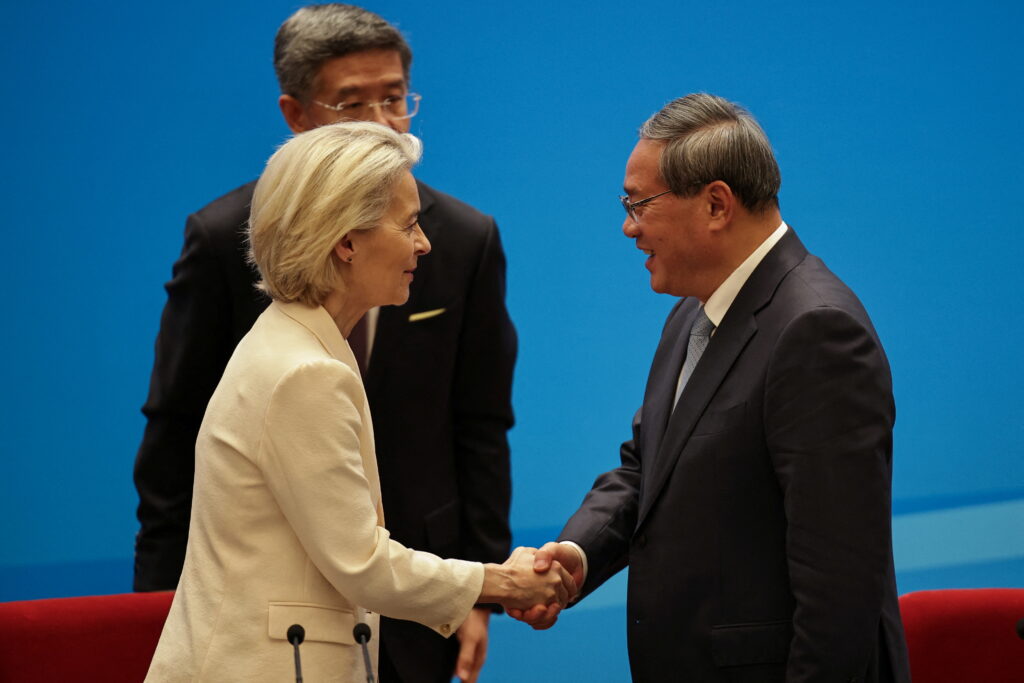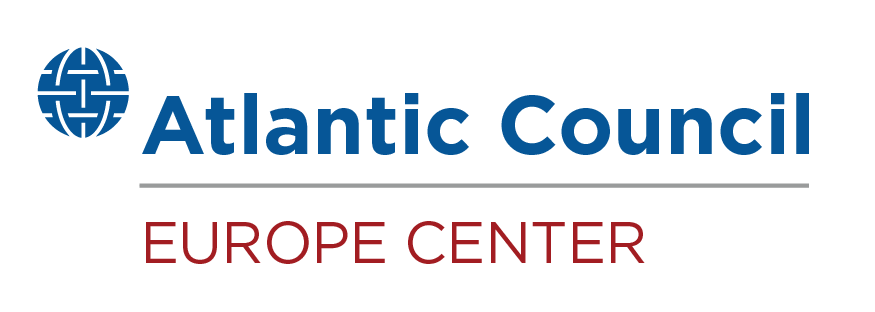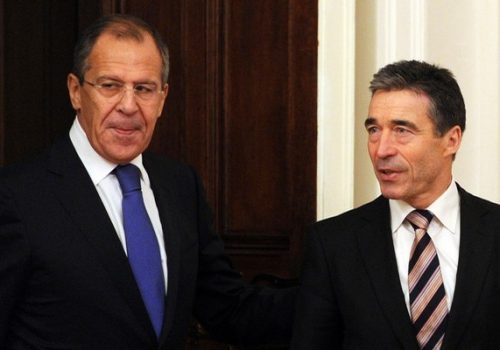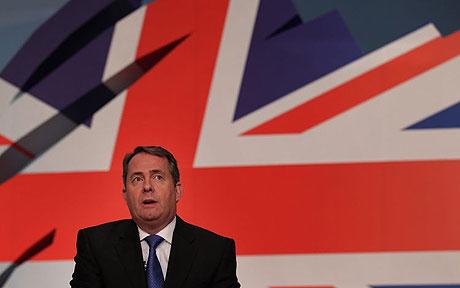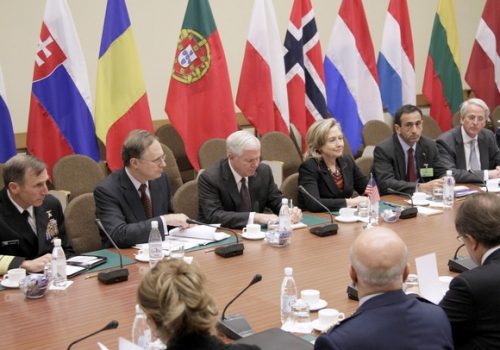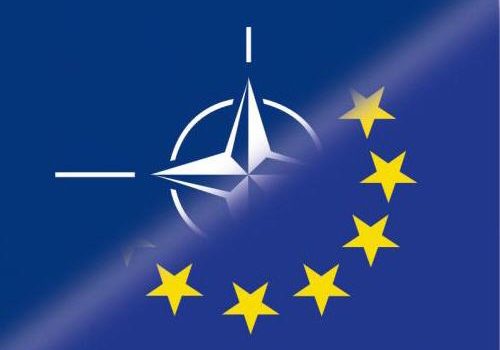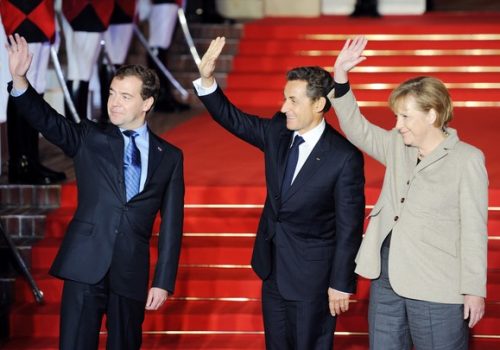Region Spotlight
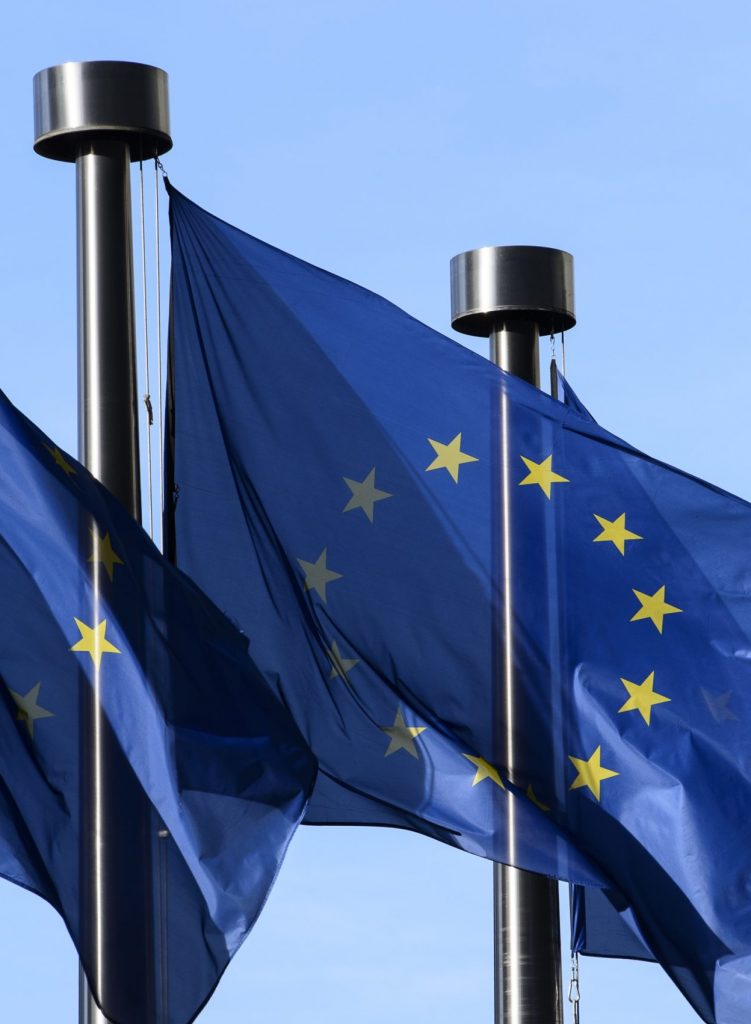
The only union of its kind
The European Union
Growing from its start as the European Coal and Steel Community, the European Union today has twenty-seven member states and is the only democratic, intergovernmental, supranational organization in the world. It has risen as a key actor and norm-setter in areas as diverse as trade, energy security, digital policy, and defense. In an era of great power competition, the United States has a national interest in the EU reinvigorating faith in the European project among Europeans and the rest of the world.

Report
Nov 10, 2025
The geopolitical trends shaping the EU’s policies on China
European policies on China are shaped by four major geopolitical trends: intensifying US-China competition, uncertainty about sustained US engagement in Europe and globally, China’s support for Russia’s war on Ukraine, and Beijing’s growing economic and technological challenge to the EU.
Read More

New Atlanticist
Aug 27, 2025
The US-EU face-off over pharma is on pause—for now
By
Emma Nix
Both Europe and the United States would benefit from working together to secure affordable and accessible pharmaceutical supply chains.

Report
May 20, 2025
The European Union Growth Plan for the Western Balkans: A reality test for EU enlargement
By
Valbona Zeneli, Richard Grieveson, Isabelle Ioannides, Dimitar Bechev
EU enlargement faces a test case in the Western Balkans. The current plan offers real benefits before accession, creating incentives for reform, but questions of enforceability and the relatively low amount of financial support threaten the success of the EU’s political influence in the region.
Featured events
The Transatlantic Digital Marketplace Initiative
In-depth Research & reports
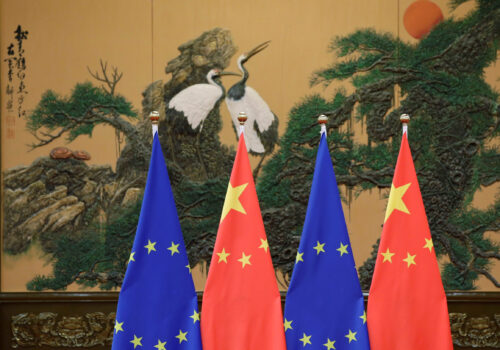
Report
Nov 10, 2025
Is Europe waking up to the China challenge? How geopolitics are reshaping EU and transatlantic strategy
By
Zoltán Fehér, Valbona Zeneli
China’s rising global ambitions challenge both US and European interests. By examining the EU’s gradual shift toward “de-risking” and gaps in transatlantic policy, this report offers insights for developing a more coherent and coordinated strategy to address Beijing’s economic and security challenges.
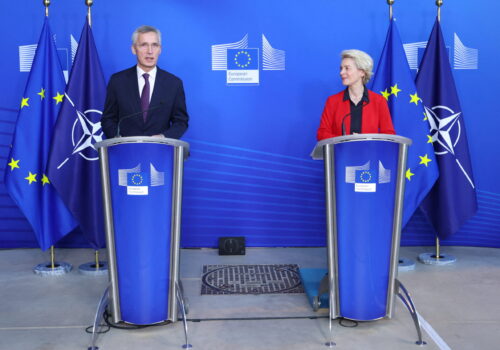
Issue Brief
Mar 5, 2025
The EU must become a strategic player in defense—alongside NATO
By
Justina Budginaite-Froehly
The European Union and NATO need renewed alignment on defense to meet the new geopolitical moment. Refocused cooperation would provide a critically needed burden sharing to eliminate vulnerabilities and prepare Europe to withstand new realities.
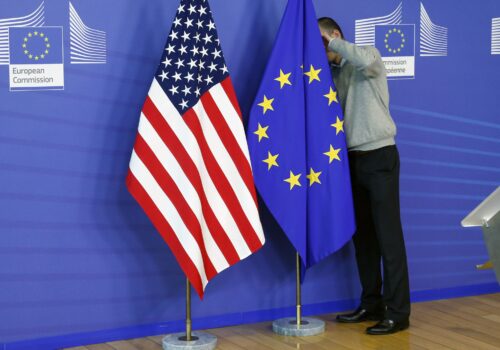
Report
Oct 7, 2024
Transatlantic horizons: A collaborative US-EU policy agenda for 2025 and beyond
By
Atlantic Council experts
With new leadership on both sides of the Atlantic, this report outlines an agenda for common action for the next US administration and European Commission.
